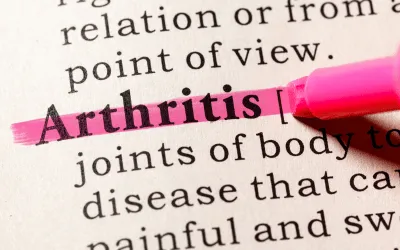About Arthritis
As the nation’s #1 cause of disability, arthritis affects nearly 60 million adults and 300,000 children. Over 100 types of arthritis and related conditions damage the joints and often other organs.
How can we assist you?
Helpful Tools for You

Did You Know? Smoking Can Amplify Ankylosing Spondylitis Effects
Diving into the world of research, there are some significant insights into how smoking affects people with ankylosing spondylitis (AS). AS, a member of the axial spondyloarthritis family, majorly targets the spine and where the spine meets the pelvis.
Recent findings from a comprehensive British study reveal that folks with AS who smoke often face swifter spinal damage, a key characteristic of this arthritis type. What's more? Smokers with AS often experience a dip in their mood and overall quality of life.
Dr. Sizheng (Steven) Zhao, who spearheaded this study, emphasizes how smokers with this condition consistently report deteriorating health compared to non-smokers. Interestingly, smokers also show heightened anxiety, depression, disrupted sleep, fatigue, and even a connection with psoriasis, another autoimmune condition.
Delving deeper, while both men and women smokers with AS experience exacerbated disease symptoms, the effects are notably harsher for men. And guess what? Men who kick the habit experience notable improvements! Although the reasons behind these gender differences are still under the microscope, it's worth noting that men often smoke more heavily than women.
Other intriguing findings suggest that male smokers with AS might face a faster disease progression. Some even develop bony growths leading to spinal fusion, which can be incredibly painful and limit movement.
The big question remains: Why does smoking intensify AS? Many researchers believe that the inflammation from smoke inhalation may accelerate the damage. Yet, understanding the full picture is tricky as smokers often juggle other health and lifestyle factors that could influence AS.
But here's a silver lining: Quitting can make a world of difference! Former smokers with AS generally have lower disease activity and enjoy a better quality of life than those who still light up. The benefits? Think of them as akin to the positive impacts of dedicated physical therapy and specific medications.
To wrap it up, as Dr. Zhao rightly points out, apart from the obvious health hazards like heart diseases and cancers, smoking significantly boosts the risk of cardiovascular diseases, especially for those with rheumatic conditions like AS. So, championing a smoke-free life, along with embracing a balanced diet and regular exercise, is the way to go for overall well-being.
Effects of Arthritis

Cause of Disability
In the United States, 23% of all adults, or more than 54 million people, have arthritis. It is a leading cause of work disability, with annual costs for medical care and lost earnings of $303.5 billion.

Workforce Effects
Sixty percent of US adults with arthritis are of working age (18 to 64 years). Arthritis can limit the type of work they are able to do or keep them from working at all.

Global Impact
In fact, 8 million working-age adults report that their ability to work is limited because of their arthritis. For example, they may have a hard time climbing stairs or walking from a parking deck to their workplace.
Promoting Interventions That Reduce Arthritis Pain
American Arthritis Foundation recognizes several proven approaches to reduce arthritis symptoms:
Be active. Physical activity—such as walking, bicycling, and swimming—decreases arthritis pain and improves function, mood, and quality of life. Adults with arthritis should move more and sit less throughout the day. Getting at least 150 minutes of moderate-intensity physical activity each week is recommended.
Protect your joints. People can help prevent osteoarthritis by avoiding activities that are more likely to cause joint injuries.
Talk with a doctor. Recommendations from health care providers can motivate people to be physically active and join a self-management education program. Should your arthritis be interfering with your activities of daily living you may be a candidate to receive many new treatments, and learn how to reverse the arthritis condition.
Have a question?
We're Here to Help
By providing my phone number, I agree to receive text messages from the business.


